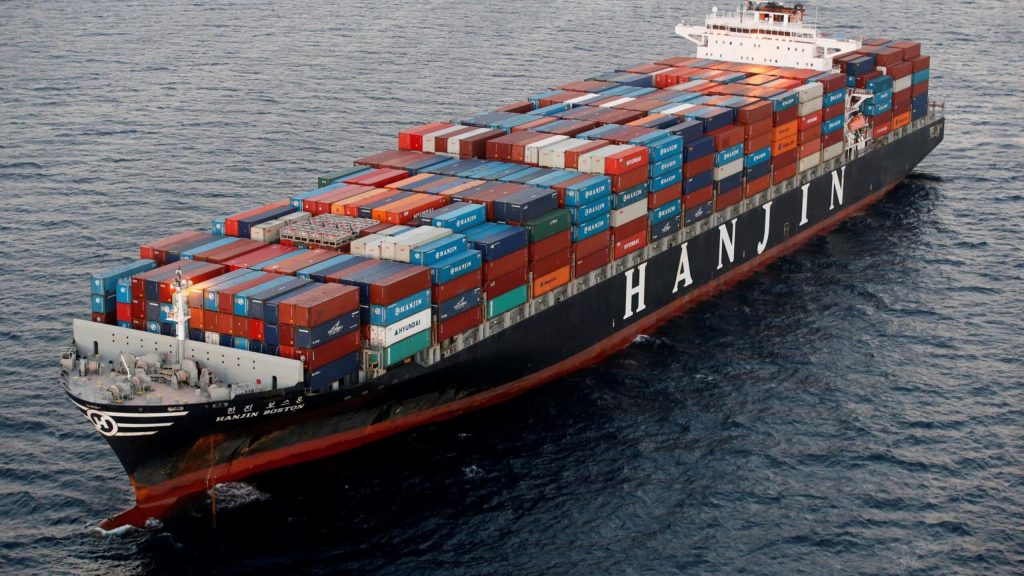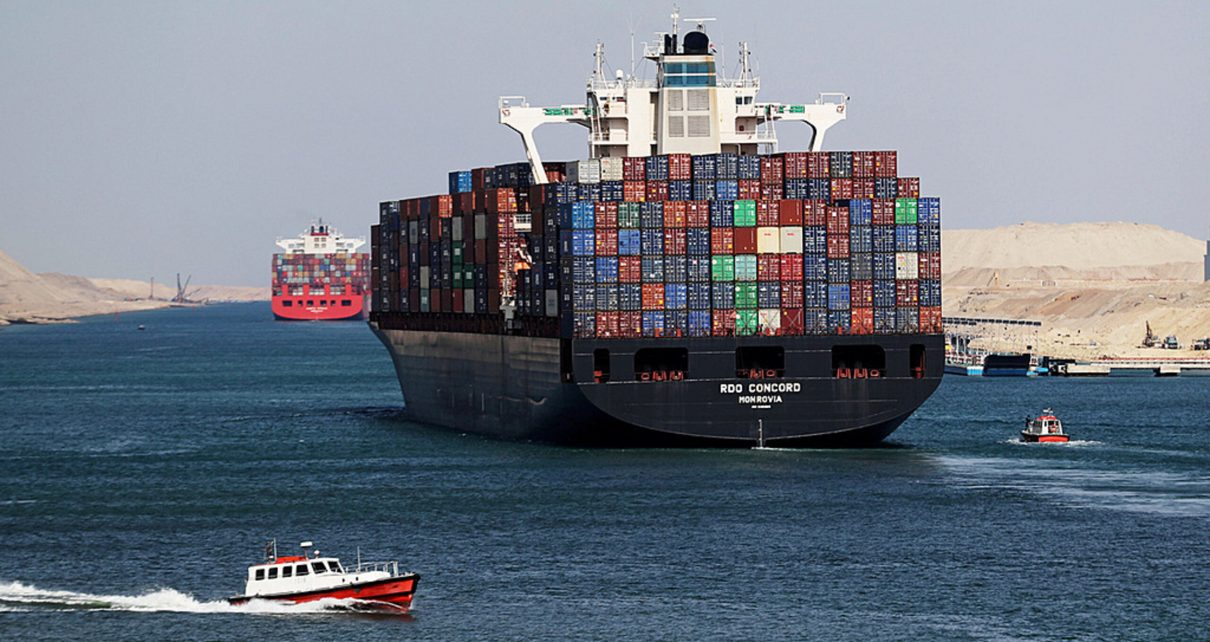Experts on Friday urged the Federal Government to consider having a national fleet for the maritime industry to effectively contribute its quota to the country’s Gross Domestic Product (GDP).
They made the appeal in separate interviews with the News Agency of Nigeria (NAN) in Lagos.

Mr Greg Ogbeifun, Chairman and Chief Executive Officer of Starzs Investments Group, said that the country was doing well in domestic shipping trade but had actually gone backward in respect of global fleet development.
According to him, the Nigerian maritime industry has grown since independence, but whether the industry has grown well enough or has managed well enough to contribute effectively to the country’s GDP is a different thing entirely.
“I think that we could have contributed effectively to the GDP if the industry was given its relevant share and support to be more productive.
“From Independence till about 1995, we had managed, developed and grown a very vibrant national fleet under the auspices of the Nigerian National Shipping Line to the extent that at some point we had about 29 ships handling imports and exports.
“At that time, you can imagine the economic contribution that the national line was making to the country; the job creation in that fleet; and the human capacity development in the industry courtesy of the national shipping line.
“But regrettably in 1995, the National Shipping Line was no more for various reasons and since that time the country has lost all the benefits that it was getting economically like job creation, skills and human capacity development, training platform and so many.
“Regrettably, 25 years down the line, the nation has not been able to articulate a replacement for a global fleet, whether privately or publicly-owned or Public Private Partnership.
“We just walked away from it, and so no platform of training for Nigerian cadets. Carriage of our imports and exports is now transferred to foreign ship owners and this is a matter of regret, but it is not late to do something about it,” he said.
Ogbeifun said that with respect to domestic trade, concerning ship ownership and shipping activities relating to Cabotage trade, the country had done well.
He said that the Nigerian Maritime Administration and Safety Agency (NIMASA) Act, the Cabotage Act and Local Content Act would help to assist Nigerian ship owners, even with the presence of foreign ship owners who were participating in the industry.
The ship owner said that prior to COVID-19 and the crash in oil price, the Nigerian tonnage of domestic trade was on the rise.
Ogbifun said that with COVID-19 and the crash in oil price, the main charterers of the domestic trade, which were the oil companies, had to adjust their operations to be able to survive.
He said that this affected ship owners in the country as most of their ships were off hire, and contracts were cancelled.
According to him, most owners whose vessels survived were working at about 30 per cent.
Ogbeifun said that most ship owners working obtained bank loans and could not meet their obligations.
He called on the Federal Government to consider some palliative measures for the ship owners like what other countries were doing.
“To make matters worse, we have millions of dollars stuck in Cabotage Fund account and this could have been used to cushion the effect of what ship owners are facing in the maritime sector.
“We do not have anything to show in the maritime industry for our 60 years of independence.
“There must be a way forward for our global trade. A country with over 200 million people, producing and exporting over one million barrels of crude oil every day,” he said.
Ogbeifun said that when the minister came into office, he set up a committee to explore the re-establishment of a national fleet that would trade globally.
According to him, the initiative, though fantastic, has not been able to yield the desired result.
He said that there was also a need to address the issue of tax laws.
Ogbeifun expressed concern that if a Nigerian built and brought a ship into the country, he would pay full import duty estimated at 14 per cent, while a foreigner was expected to pay just one per cent customs bond.
He said that automatically, a Nigerian was disadvantaged because he and the foreigner were meant to compete for the same tenders and claims.
“Government needs to review the tax laws on ships to have a level playing field for everyone.
“In other countries, if you buy a ship and you are a national of that country and you want to register, it is zero duty.
“They will review their VAT, tonnage tax and give you tax holiday for five years so that you can competitively be in business, but here we pay all the taxes mentioned.
“This will make us unable to compete with foreign ship owners and it also becomes too expensive for anyone that wants to charter a ship, ” he said.
Dr Emeka Enebeli, National President, Association of Shipping Petroleum and Freight Logistics of Nigeria (ASPFLN) said that Nigeria was very strategic in her position in West Africa and also within the Gulf of Guinea right from the days of independence.
He noted that the maritime sub-sector of the transport industry had been the most buoyant in the country’s economy.
Enebeli said that Nigeria had benefited so much through shipping within the maritime zone, but recently failed to realise that the trend of activities in the industry needed to take an upward review.
He pointed out that the country had also neglected investing in the micro part of the maritime industry where its people had comparative strength, such as ship agency, clearing and forwarding, ship maintenance and others.
Enebeli described the micro part as being very pivotal to the success of the sector, as it would give room for Nigerians to have lucrative jobs.
He also urged President Muhammadu Buhari to come up with an executive order that would compel all the agencies including Nigeria Customs, Nigerian Ports Authority and others to operate collectively.
According to him, their activities affect the turnaround time and positive benchmark of the industry.
“Too many agencies are doing same thing within the industry and this means that the turnaround time of doing business in the industry is heavily affected, and as such, profit will equally be reduced, employment reduced and companies not making profit.
“It is time we wake up strongly to turn Nigeria into a hub and this can be done by removing bureaucracy, proliferation of taxes and regulations,” he said. (NAN)


